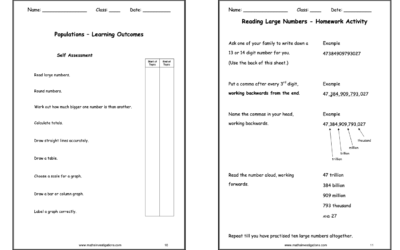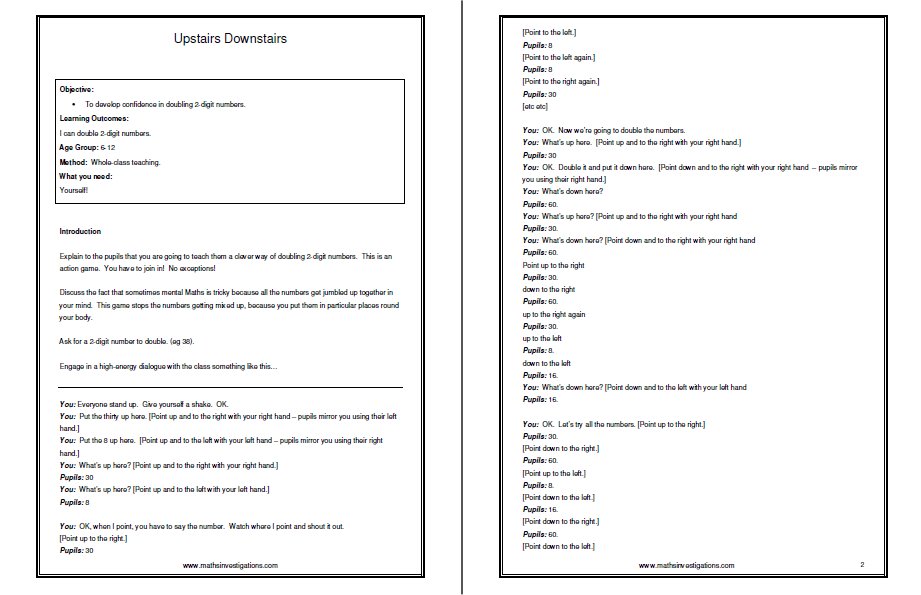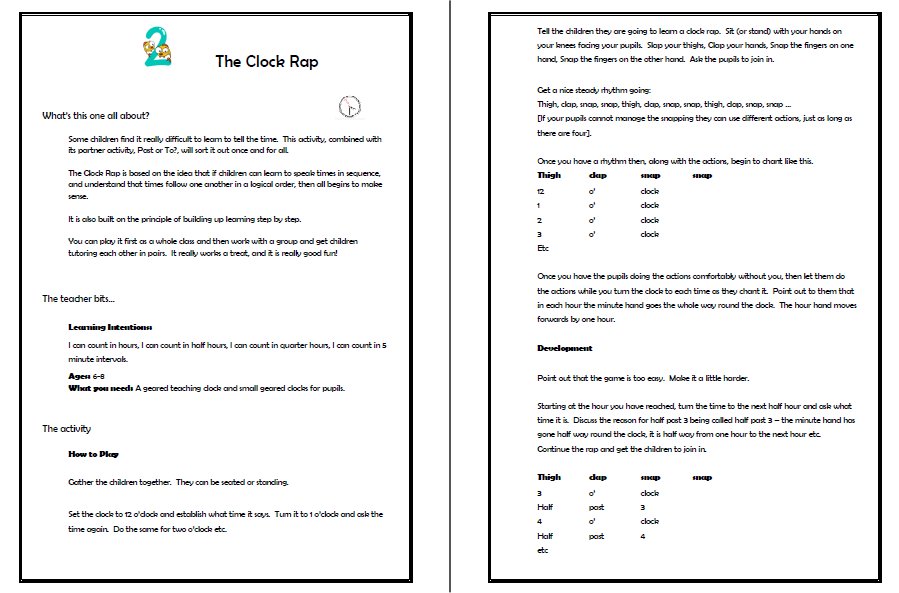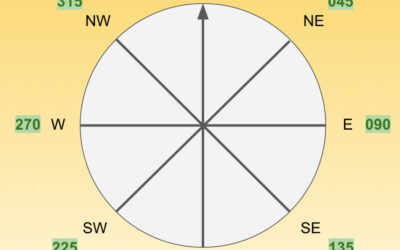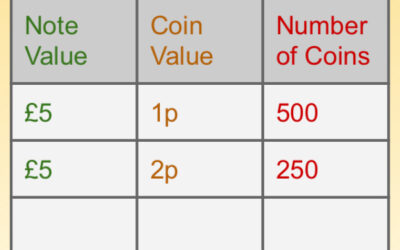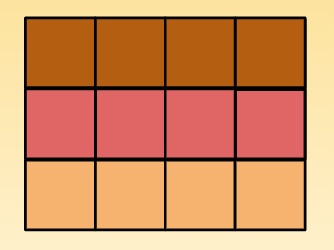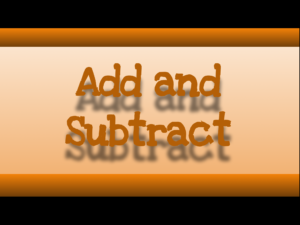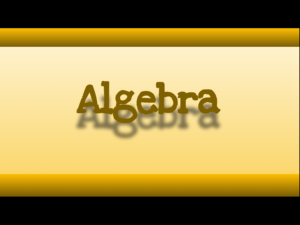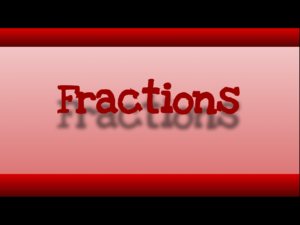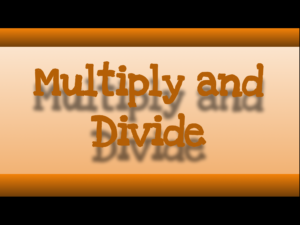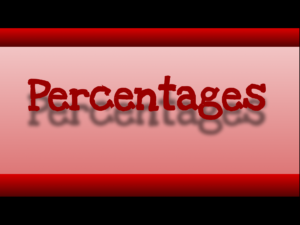Guidance for Parents
As parents, many of us are unsure about how best to help our children with Maths. If our child is finding something difficult, we wonder if it is OK to show them the way we were taught at school, or whether this will confuse them. If our child tells us they are not being challenged by what they are learning in school, we don’t know how to stretch them. The guidance you will find on this website will hopefully give you the understanding you need to be able to help.
Guidance for Teachers
As teachers, we often feel we are expected to work miracles. We have a class of children of widely varying capabilities, who all need our individual attention, and we are asked to give each of them the right level of support or challenge so they can maximise their potential. This can be particularly difficult in Maths, where skills and concepts need to be built up step by step. What resources and approaches might there be that would engage all pupils together?
What will I find here?
Whether children find Maths easy or difficult, they are often capable of far more than we think if they are. All we need to do is give them the right encouragement and support. The guidance and resources you will find on this site should enable you to do just that, and truly explore with them Maths Without Limits.
Photocopiable Resources
Open-ended, Guided Explorations
Much of mathematical learning can happen through guided exploration. These activities encourage children to work with others and with an adult to discover the wonder of Maths in a whole range of different contexts.
Example:
Populations
Investigate the populations of towns or countries and learn how to work out how many more people live in one town than another and how many times bigger one town is compared with another....
Practical Activities for Core Skills
These activities focus not on teaching rules but on building children’s understanding through practical materials and diagrams. This ensures that children learn not just how to do things, but why things work the way they do.
Example:
Upstairs Downstairs
Get things moving with this lively game which uses the space around the body to develop skills in doubling. Can also be used for halving.
Memorising Activities & Games
Knowing key facts like multiplication tables and number bonds is really important for building children’s confidence. The activities here are carefully designed to build their skills step by step so that secure learning takes place.
Example:
The Clock Rap
Make time fun with this highly popular game to help understand that times follow one another in sequence.
Interactive Slide Show Resources
With the increasing focus on sustainability, we are are all trying to reduce our printing budgets. These activities are predominantly worksheet-free and instead encourage children to draw and explore things from scratch on blank or squared paper. Like the pdf explorations above, they open children’s minds in a steadily unfolding way to the wonder of Maths.
Extended Explorations
These resources provide a wealth of material for both whole-class teaching and group working which can act as the backbone for a topic over a number of weeks. There is a particular focus on exploration through mathematical talk.
Example:
Sunrise and Sunset
Looking at the times across the year for sunrise and sunset provides a good context for revising 12 and 24 hour time, and for exploring the time difference caused by the change from (eg) Greenwich...
Mini Explorations
These shorter explorations are ideal for home learning. Each focuses on a single idea and encourages the child to explore it fully. ‘Together time’ slides at the start of each task encourage discussion with a parent before the child works alone.
Example:
Money Puzzle: Notes and Coins
This unit begins with a numberless problem, which we try to to solve by putting different numbers in. In the process, we look at UK coinage and notes and the patterns in the numbers. There is then a...
Visual Skill Builders
To be really confident with Maths, children need to build up a bank of visual strategies which they can draw on to solve different problems. These activities each focus on a single visualisation and explore how it can be used for a particular skill.
Example:
Rectangle Diagram – Multiply Two Numbers
This is one of a series of visual skill builders which are designed to give children a toolkit of diagrams, words and phrases to help them explain their mathematical understanding and solve...
Frequently Asked Questions
Where do the resources come from?
Nearly all the resources on the site are activities I have carefully developed myself, for my own use and for my colleagues, over more than 25 years teaching in three different schools as a Primary Maths Specialist. They are tried, tested and unique, so you will not find them anywhere else.
Who are they for?
The activities have all been developed for primary and early secondary pupils. Some are mainly intended for use in the classroom. Others are designed so they can be used both in school and at home.
What topics are covered?
The resources cover the following topics.
What does it cost?
You can sign up for free and have random access to all the resources, so you can try one or two and see how they work for you.
If you like what you find, you can upgrade for a small fee to an Enhanced subscription where you will have access to the full topic menu and a comprehensive search, so you can find resources to suit your particular needs.
